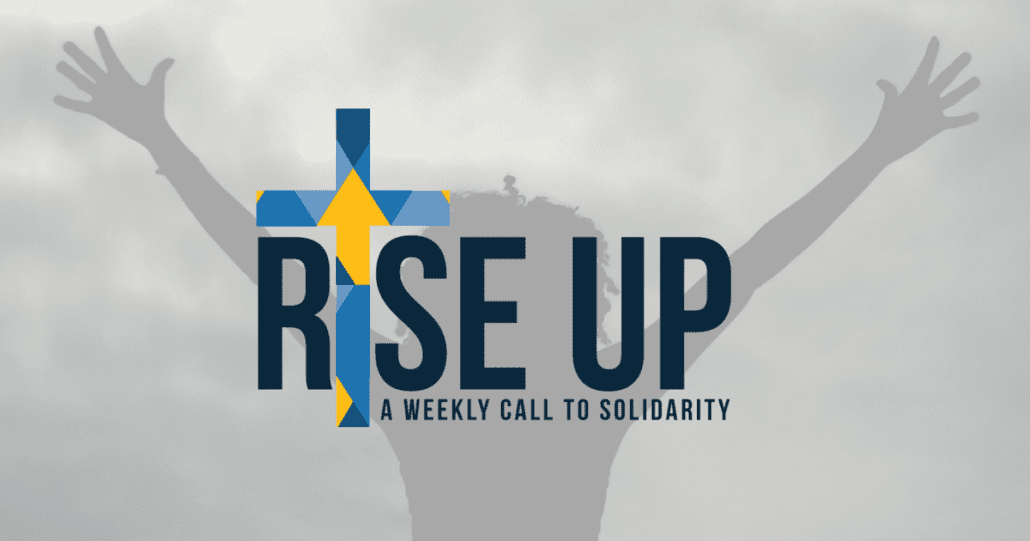Not Seven Times but Seventy-Seven Times
BY NATALIE TERRY | September 17, 2017
Sunday’s Readings

The readings from this Sunday are focused on forgiveness: God’s forgiveness and our forgiveness. And so, especially in divisive times like these, Jesus’ message to us proves to be challenging. In reflecting on these readings, I find myself asking: How do we forgive? With so much pain and sorrow and hurt, with so much misunderstanding, how do we forgive?
The story goes in the Gospel that Peter comes to Jesus and asks, “Lord, if my brother or sister sins against me, how often must I forgive? As many as seven times?” I can just picture Peter waiting for Jesus’ response. If he’s like me, he had his notebook poised and ready, waiting to take notes. Maybe he was hoping that Jesus would give a step-by-step plan for forgiveness. But, Jesus’ response is this, “I say to you, not seven times but seventy-seven times.”
Upon hearing this, I picture Peter finding Jesus’ gaze and giving him a perplexed, this is not what I was expecting look. The Gospel stories are filled with moments like this. Moments where Jesus’ love and compassion exceed what the disciples, and we, expect, or even understand. This is the beauty of God’s unfailing love.

My question still remains, how do we forgive? I’m still stuck on the process: if I do x, y and z then forgiveness will come. But we know with Jesus, this is a matter of heart and compassion and mercy. Instead of how do we forgive, Jesus has a different question for us: Do we desire to forgive? Here, in our desire, will come transformation of heart. As we realize this desire again and again, God’s love will transform us and give us the courage to labor for peace to prevail in our world. This is God’s dream. This week as we contemplate what Jesus’ response of “not seven times but seventy-seven times”means for us, I invite you to spend time with these words from monk and spiritual master, Thomas Merton:
In a time of drastic change one can be too preoccupied with what is ending or too obsessed with what is beginning. In either case one loses touch with the present and with its obscure but dynamic possibilities. What really matters is openness, readiness, attention, courage to face risk. You do not need to know precisely what is happening, or exactly where it is all going. What you need is to recognize the possibilities and challenges offered by the present moment, and to embrace them with courage, faith and hope. In such an event, courage is the authentic form taken by love. (Thomas Merton, Conjectures of a Guilty Bystander, 268)
With forgiveness, we may not know exactly where it is all going. But God is in our midst and so we can embrace loving the world with courage, faith, and hope.
Natalie Terry is director of the Ignatian Spiritual Life Center, a ministry of St. Agnes Parish in San Francisco, CA. She has a Masters of Divinity from the Jesuit School of Theology of Santa Clara University in Berkeley, California. She is currently working on her thesis for a Licentiate in Sacred Theology in the area of sacramental theology. She graduated from John Carroll University in 2010 with Bachelor of Arts in religious studies and served as a volunteer with the Sisters of the Humility of Mary in Pulaski, Pennsylvania. Natalie has been a facilitator and prayer leader with the Ignatian Solidarity Network, and she serves as a lay preacher, lector, Eucharistic minister and presider of Communion services and Liturgies of the Word. She is also currently serving as the Director of Children’s Faith Formation at St. Agnes Parish. She is originally from Wynantskill, New York.










Dear Natalie, Thank you for your timely and thoughtful commentary on forgiveness. Your passage, “What really matters is openness, readiness, attention, courage to face risk. You do not need to know precisely what is happening, or exactly where it is all going. What you need is to recognize the possibilities and challenges offered by the present moment, and to embrace them with courage, faith and hope. In such an event, courage is the authentic form taken by love. (Thomas Merton, Conjectures of a Guilty Bystander, 268),” also applies beautifully to service learning at Jesuit universities. When serving the underserved, our students are called to face the risks of uncertainty and minor project failures, often for the first time. Your words, and those of Thomas Merton, resonate through kinship and service, rooted in justice and love. Thanks! Eileen/aka Dr A